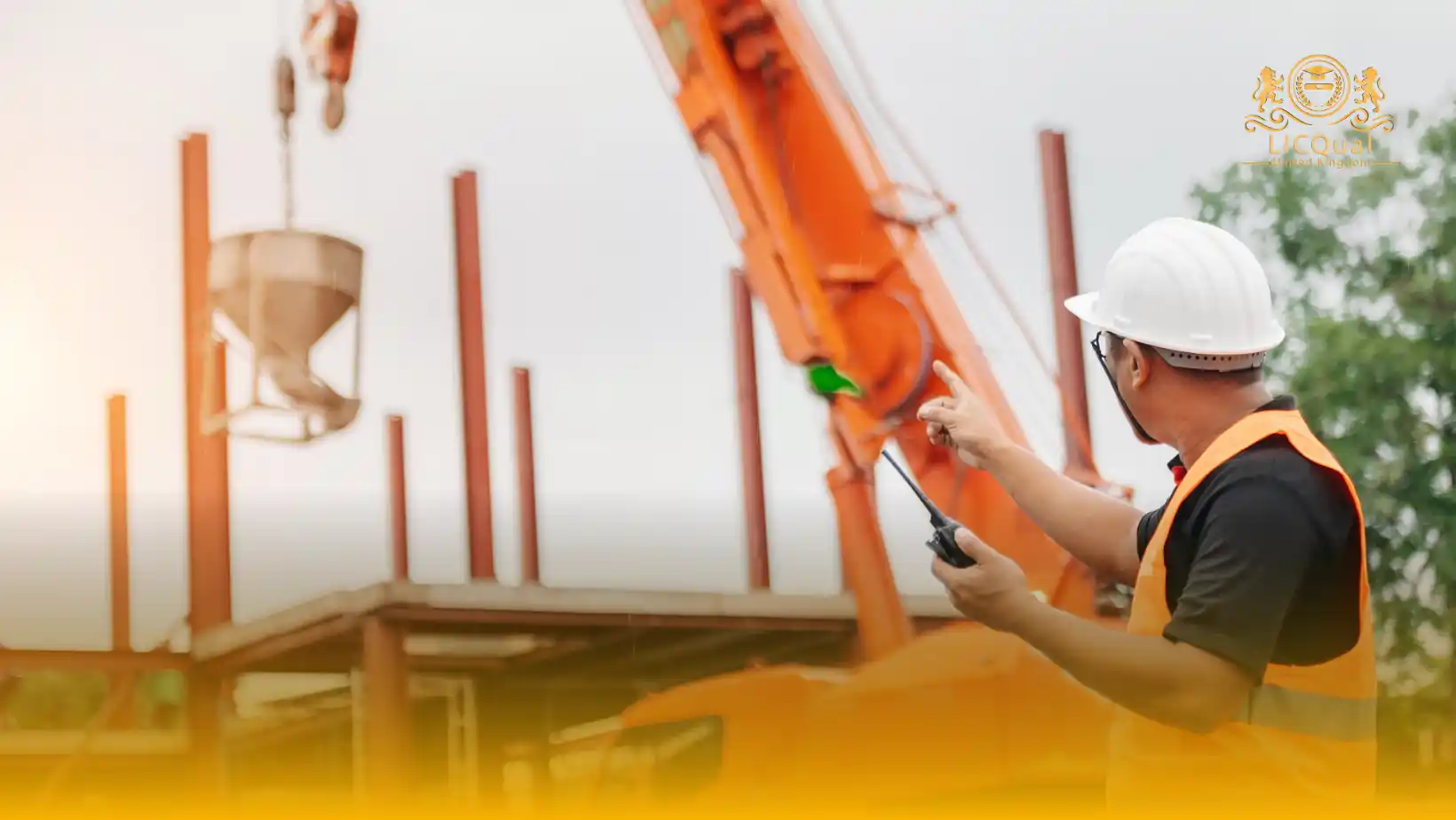The LICQual Level 5 Diploma in Controlling Lifting Operations — Planning Lifts is an advanced qualification designed for professionals looking to take on critical roles in planning and overseeing lifting operations. This comprehensive program equips you with the skills, knowledge, and expertise necessary to manage complex lifting activities safely and efficiently in high-risk environments.
Ideal for those already working in lifting operations, this course provides an in-depth understanding of the technical, safety, and regulatory aspects required for effective lifting planning.
With a focus on real-world applications, the LICQual Level 5 Diploma emphasizes advanced planning techniques, risk management, and decision-making, empowering you to lead lifting operations with confidence. Whether you’re seeking to enhance your current role or advance your career to senior lifting planner or supervisor positions, this diploma will ensure you’re fully prepared for the challenges of modern lifting operations.
The LICQual Level 5 Diploma in Controlling Lifting Operations — Planning Lifts is structured to provide in-depth knowledge and practical experience in the key areas of lift planning. This course covers essential topics such as site assessment, equipment selection, load calculations, and risk management in complex lifting operations. Students will also gain expertise in complying with industry regulations and managing lifting teams effectively.
Throughout the program, learners will explore how to create detailed lift plans, assess hazards, and ensure that operations are carried out safely and in accordance with legal standards. Additionally, the course addresses the integration of technology and advanced lifting equipment into planning, making it relevant to today’s dynamic lifting environments.
Upon successful completion of the diploma, you’ll be equipped to handle the planning and coordination of high-risk lifts in a variety of sectors, including construction, offshore, and heavy industry. This qualification is ideal for professionals aiming to become leaders in the field of lifting operations.
Course Overview
Qualification Title
LICQual Level 5 Diploma in Controlling Lifting Operations — Planning Lifts
Total Units
6
Total Credits
60
GLH
360
Qualification #
LICQ2200074
Qualification Specification
To enroll in the LICQual Level 5 Diploma in Controlling Lifting Operations — Planning Lifts , applicants must meet the following criteria:
|
Qualification# |
Unit Title |
Credits |
GLH |
|---|---|---|---|
|
LICQ2200074-1 |
Legal and Regulatory Framework for Lifting Operations |
10 |
60 |
|
LICQ2200074-2 |
Risk Assessment and Management in Lifting Operations |
10 |
60 |
|
LICQ2200074-3 |
Planning and Organizing Complex Lifts |
10 |
60 |
|
LICQ2200074-4 |
Lifting Equipment and Resources |
10 |
60 |
|
LICQ2200074-5 |
Effective Communication and Coordination in Lifting Operations |
10 |
60 |
|
LICQ2200074-6 |
Evaluation and Continuous Improvement of Lifting Operations |
10 |
60 |
By the end of this course, learners will be able to:
Legal and Regulatory Framework for Lifting Operations:
- Understand and apply relevant legal, regulatory, and industry standards governing lifting operations, including health and safety regulations.
- Ensure that all lifting activities comply with local and international laws, including OSHA, ISO, and other regulatory bodies.
- Maintain up-to-date knowledge of legislative changes and adapt lifting operations accordingly to ensure compliance.
Risk Assessment and Management in Lifting Operations:
- Conduct comprehensive risk assessments for complex lifting operations, identifying potential hazards and evaluating their impact.
- Develop and implement risk management strategies to mitigate identified risks, ensuring the safety of personnel and equipment.
- Monitor and adjust risk management processes throughout the lifting operation to maintain a safe working environment.
Planning and Organizing Complex Lifts:
- Create detailed and effective lift plans for complex lifting operations, taking into account all variables, including load weight, environment, and equipment.
- Develop strategies for organizing resources, timelines, and personnel to ensure efficient execution of lifting activities.
- Apply technical knowledge to solve challenges and adapt lift plans in real-time for safe and effective completion of operations.
Lifting Equipment and Resources:
- Select appropriate lifting equipment and resources based on the specific requirements of the lift, considering load capacities, environmental factors, and safety standards.
- Ensure the proper maintenance, inspection, and certification of lifting equipment to ensure operational safety.
- Stay updated on the latest advancements in lifting equipment and integrate new technologies and resources into planning where applicable.
Effective Communication and Coordination in Lifting Operations:
- Develop and demonstrate strong communication skills to coordinate effectively with teams, operators, and stakeholders involved in lifting operations.
- Ensure clear, accurate, and timely communication regarding lift plans, safety protocols, and operational changes to all parties involved.
- Foster a collaborative environment, ensuring all personnel understand their roles and responsibilities during lifting operations.
Evaluation and Continuous Improvement of Lifting Operations:
- Implement a system for evaluating the effectiveness of lifting operations, identifying areas for improvement.
- Analyze lifting operations to identify inefficiencies, risks, and safety concerns, using this information to enhance future performance.
- Apply continuous improvement techniques to optimize lifting plans, operations, and safety measures for ongoing success in lifting activities.
This diploma is ideal for:
Assessment and Verification
All units within this qualification are subject to internal assessment by the approved centre and external verification by LICQual. The qualification follows a criterion-referenced assessment approach, ensuring that learners meet all specified learning outcomes.
To achieve a ‘Pass’ in any unit, learners must provide valid, sufficient, and authentic evidence demonstrating their attainment of all learning outcomes and compliance with the prescribed assessment criteria. The Assessor is responsible for evaluating the evidence and determining whether the learner has successfully met the required standards.
Assessors must maintain a clear and comprehensive audit trail, documenting the basis for their assessment decisions to ensure transparency, consistency, and compliance with quality assurance requirements.

